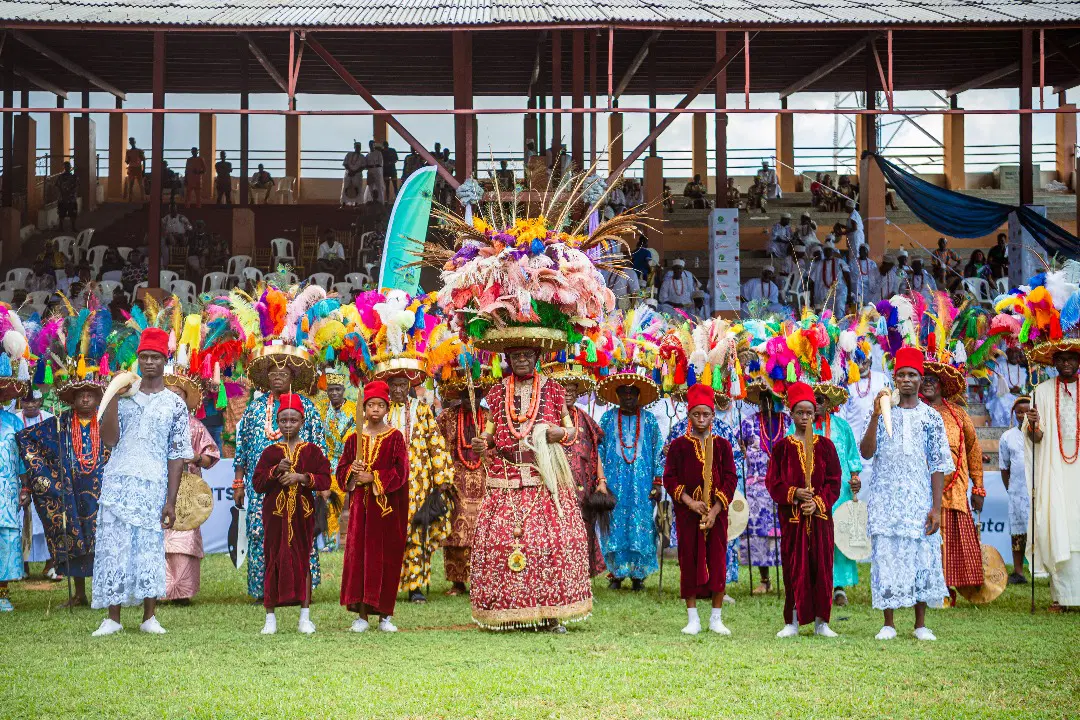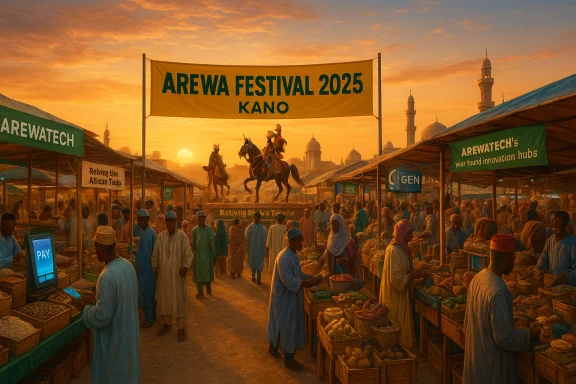Ofala Festival Onitsha 2025 celebrates unity and resilience through vibrant culture, art, and community growth, driving nearly ₦1bn in local trade
In an increasingly globalised world where cultures risk becoming homogenised, Onitsha continues to stand tall in celebrating its living heritage.
This October, the ancient kingdom once again lights up as the Ofala Festival 2025 returns a grand spectacle of colour, dance, and tradition that has transformed into one of Nigeria’s most culturally significant events.
Taking place on October 17 and 18, the festival coincides with UNESCO’s Day for Intangible Cultural Heritage (October 17), offering a fitting reminder of the importance of preserving humanity’s diverse traditions.
**Rooted in History, Evolving with Time**
Tracing its origins to the 16th century, the Ofala Festival marks the highpoint of Onitsha’s ceremonial calendar — a moment when the monarch, the Obi of Onitsha, emerges from his annual seclusion to renew spiritual bonds with his people.
Over the past six years, the festival has expanded beyond its traditional rituals to include international art exhibitions, academic lectures, and youth carnivals, earning endorsements from the Nigerian Tourism Development Corporation (NTDC) and a Certificate of Recognition for Excellence in Culture from the United Nations World Tourism Organisation (UNWTO).
**Theme: Njiko na Ntachi (Unity and Resilience)**
According to Nn’emeka Maduegbuna, a member of the 2025 steering committee, this year’s theme Njiko na Ntachi serves as a reminder of the enduring strength of Onitsha’s community spirit.
“The festival aims to foster unity, promote resilience, and uphold the timeless communal values that define our people,” Maduegbuna said.
**A Cultural and Economic Powerhouse**
Far from being a mere cultural display, the Ofala Festival has become a catalyst for socio-economic development in Onitsha. With increased attendance each year, the celebration now injects nearly ₦1 billion into local commerce benefitting traders, caterers, tailors, hoteliers, transporters, and artisans.
The demand for traditional regalia among Ndichie, Agbalanze, and Otu Odu groups fuels a thriving local fashion industry, while food vendors and service providers enjoy significant revenue boosts.
Maduegbuna noted that this surge in business activity “drives employment, reduces crime, and enhances overall quality of life,” adding that the Onitsha Development Fund now runs year-round programmes for youth and women in entrepreneurship and cultural industries.
**Rituals and Revelry**
The two-day event features distinct highlights.
Iru Ofala (Day One): The monarch’s majestic parade and dance, rich with symbolism and regalia.
Azu Ofala (Day Two): Dazzling performances by age-grade societies and the elite Otu Odu women’s group in elaborate costumes.
Other highlights include the Ofala Lecture Series, honouring Obi Nnaemeka Achebe, and the Oreze Art Exhibition, showcasing outstanding works by Nigerian and African artists.
The Ofala Youth Carnival, a lively procession inspired by traditional igba ilo, continues to attract large crowds, while a thanksgiving service wraps up the festivities.
**Beyond the Celebration**
Beyond its colour and splendour, the Ofala Festival remains a testament to Onitsha’s enduring cultural identity a living heritage that bridges the past and the present, while charting a sustainable path for the future.
In Maduegbuna’s words, “Ofala is not just about dance or display it is about the spirit of Onitsha people: our unity, resilience, and commitment to growth.”

 Business3 years ago
Business3 years ago
 Events3 years ago
Events3 years ago
 Culture3 years ago
Culture3 years ago
 Culture3 years ago
Culture3 years ago
 Events3 years ago
Events3 years ago
 Events1 year ago
Events1 year ago
 Paranormal3 years ago
Paranormal3 years ago
 Events2 years ago
Events2 years ago


































